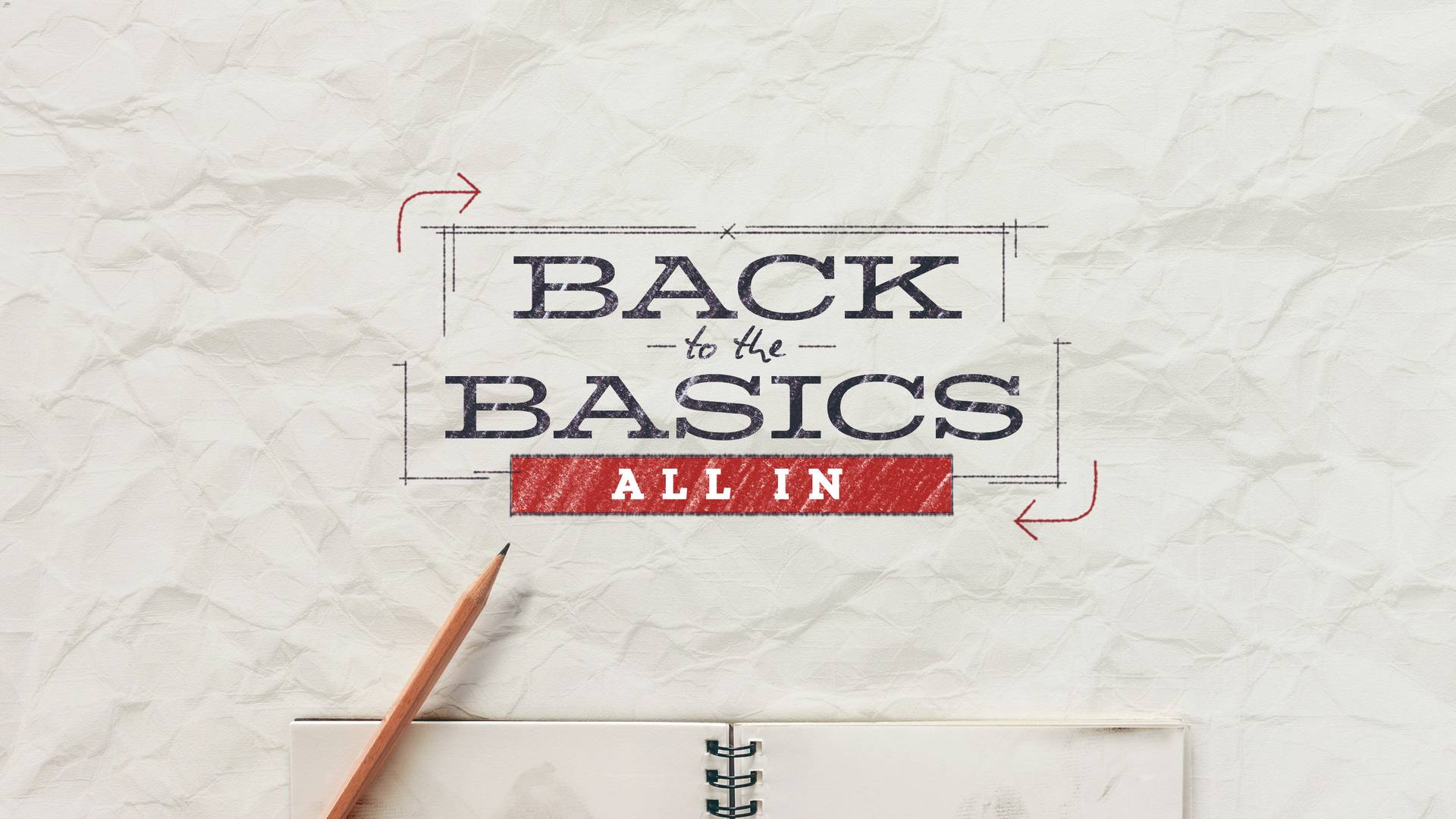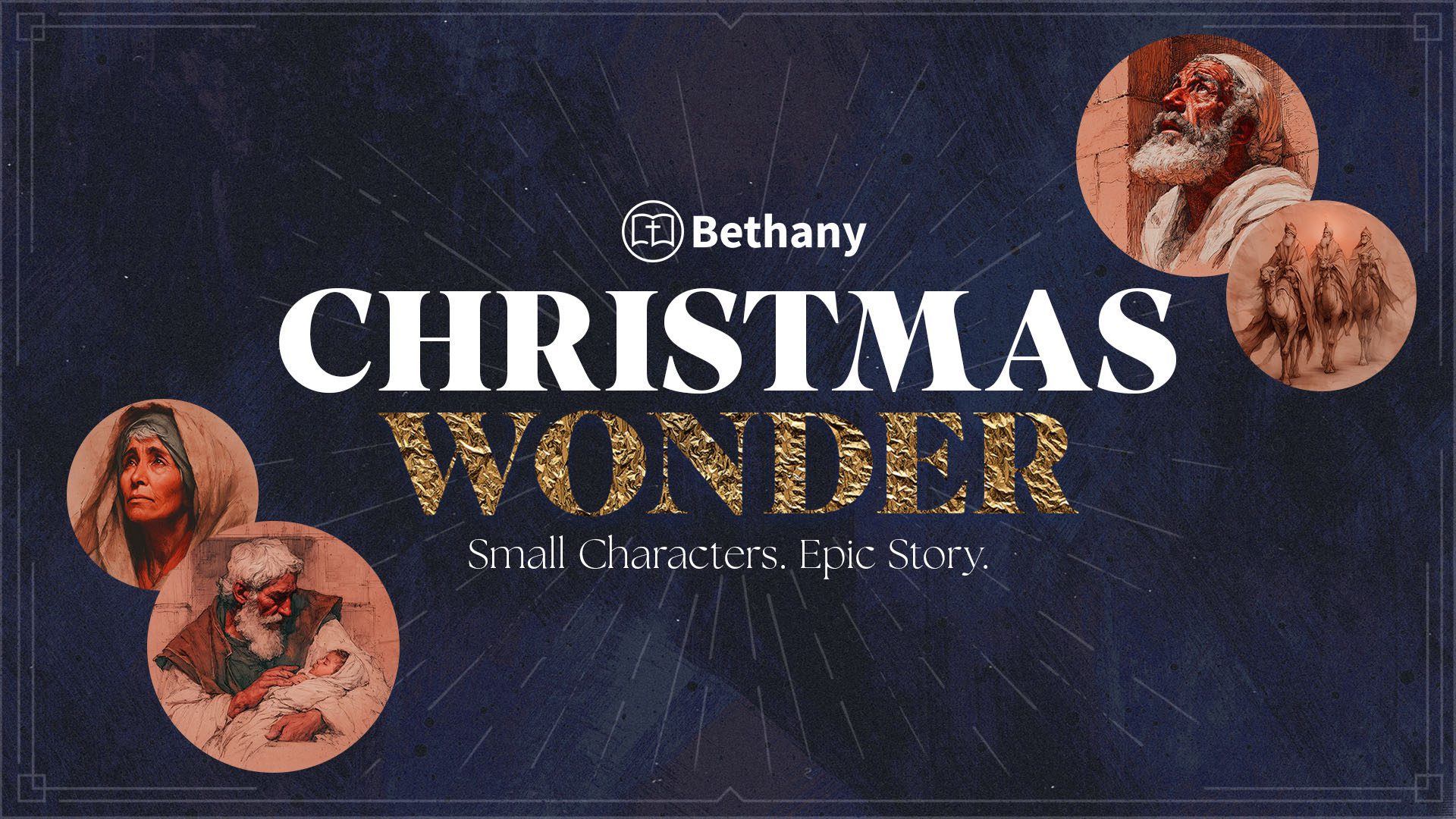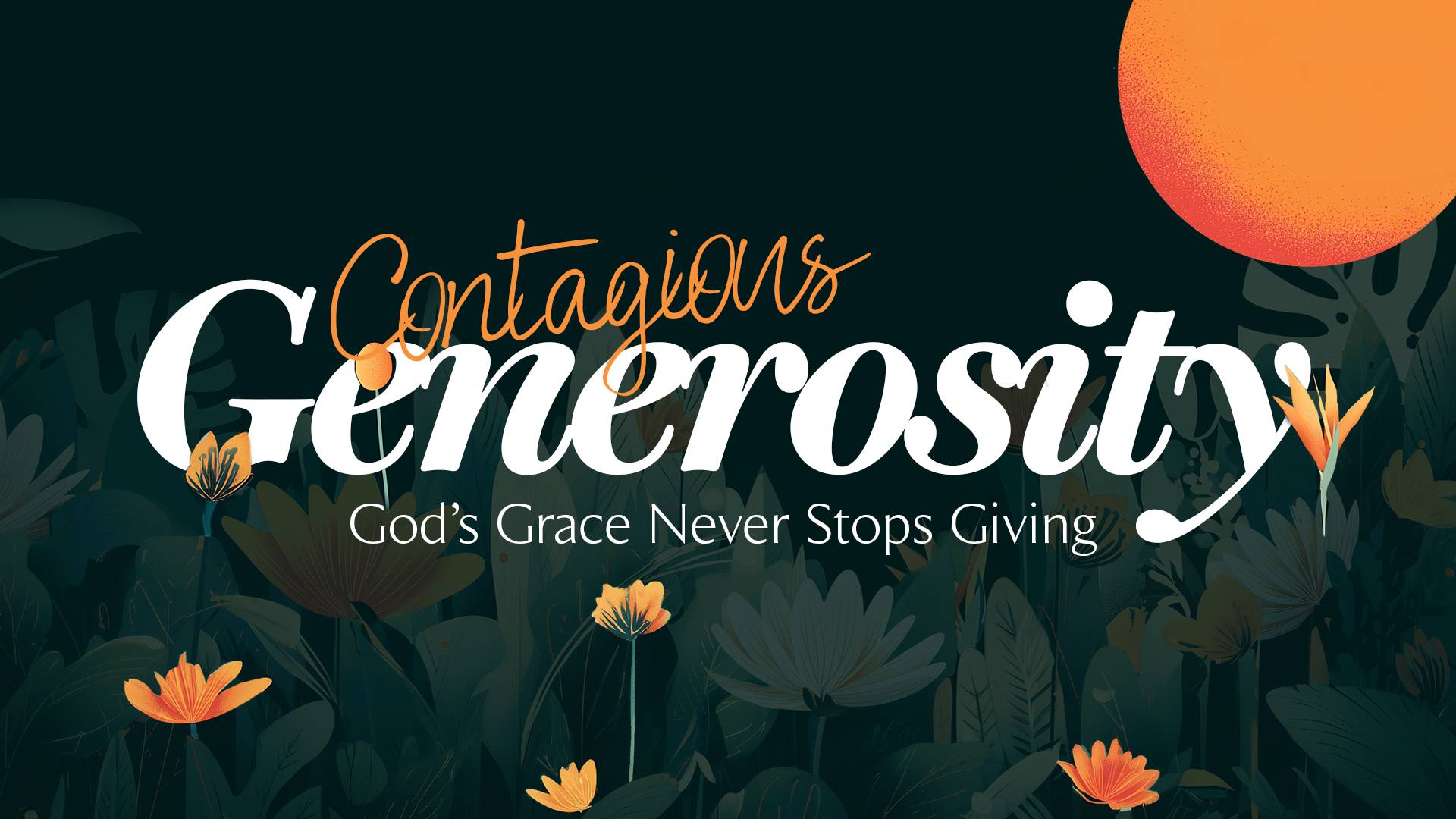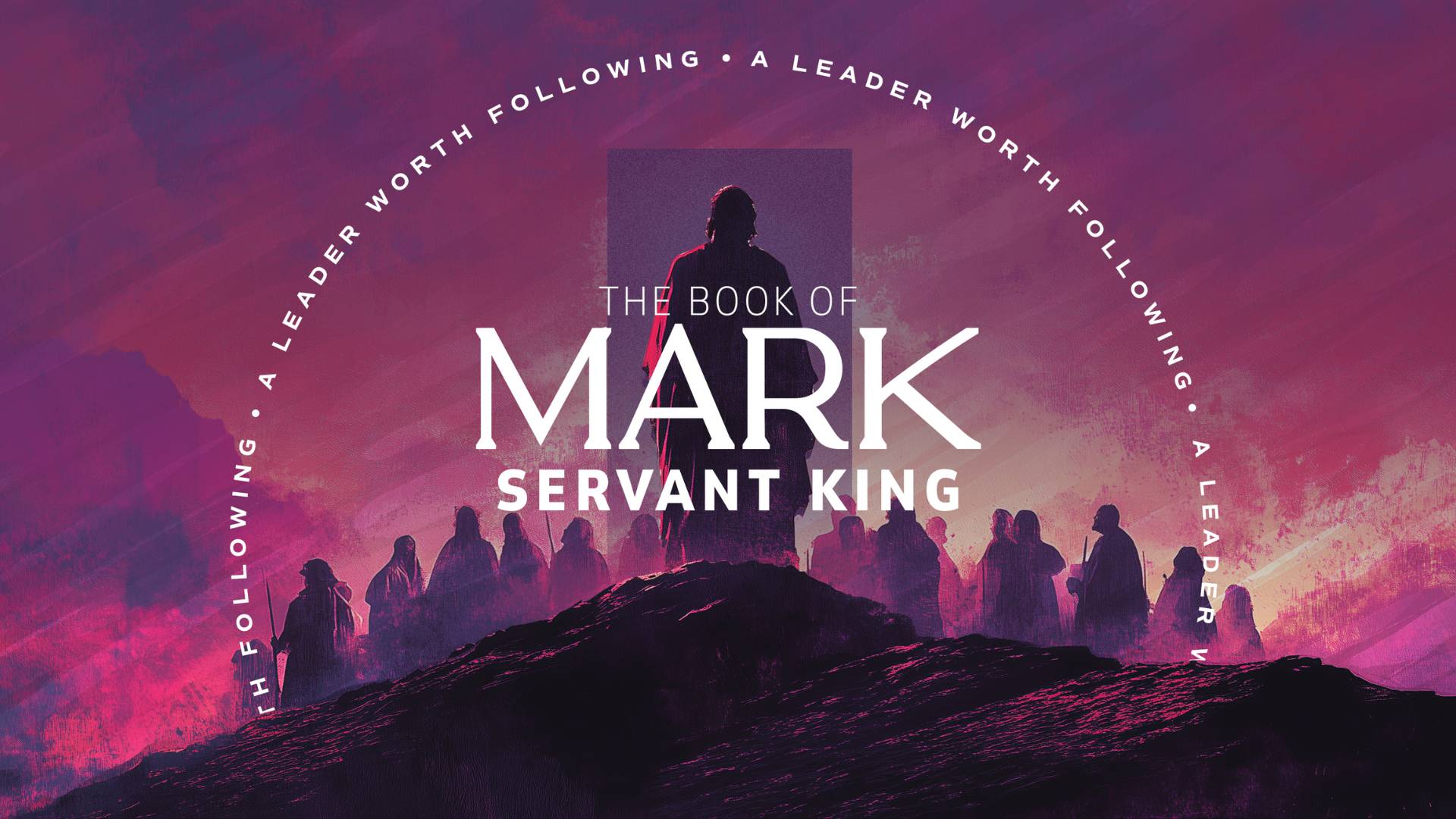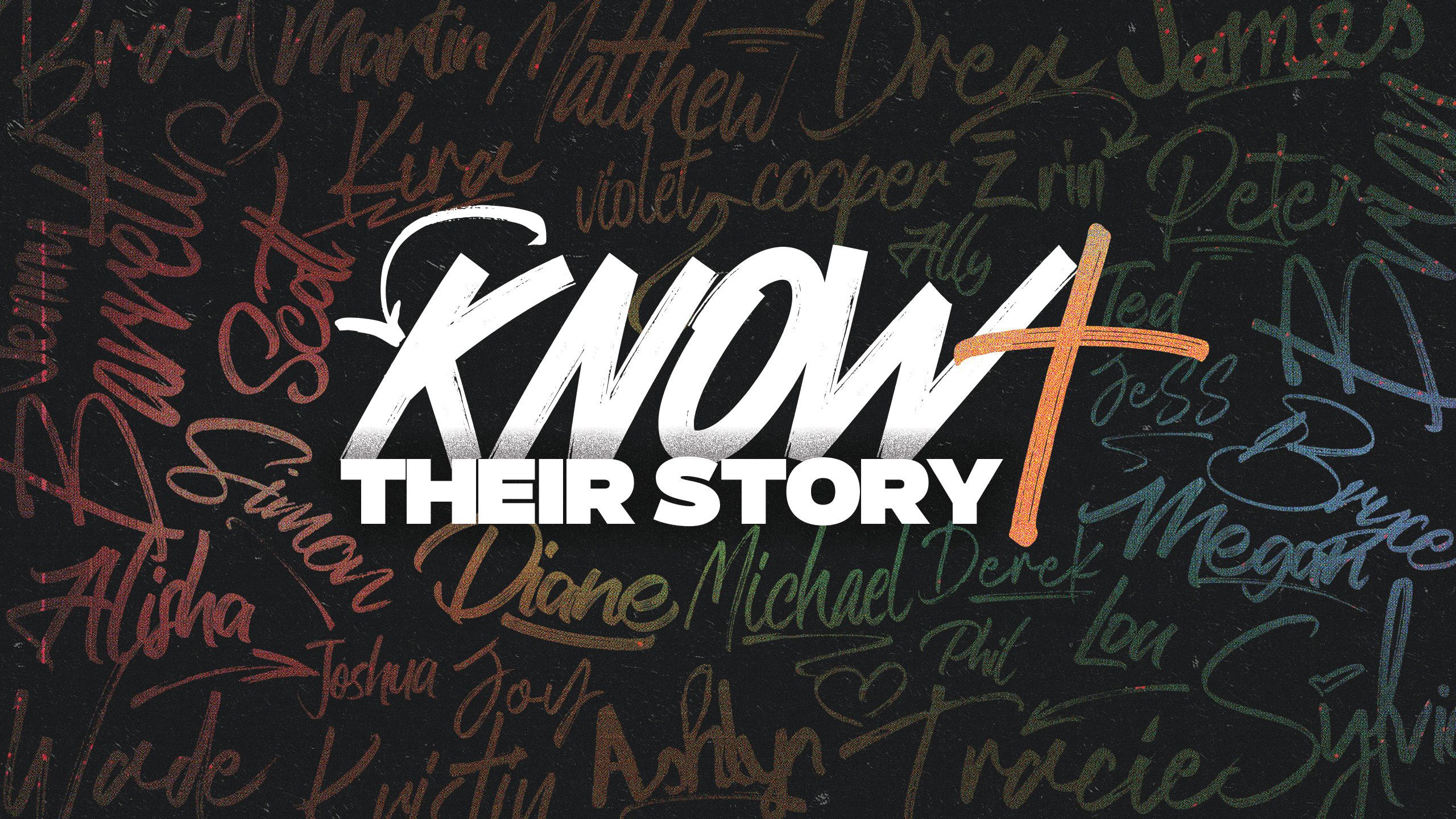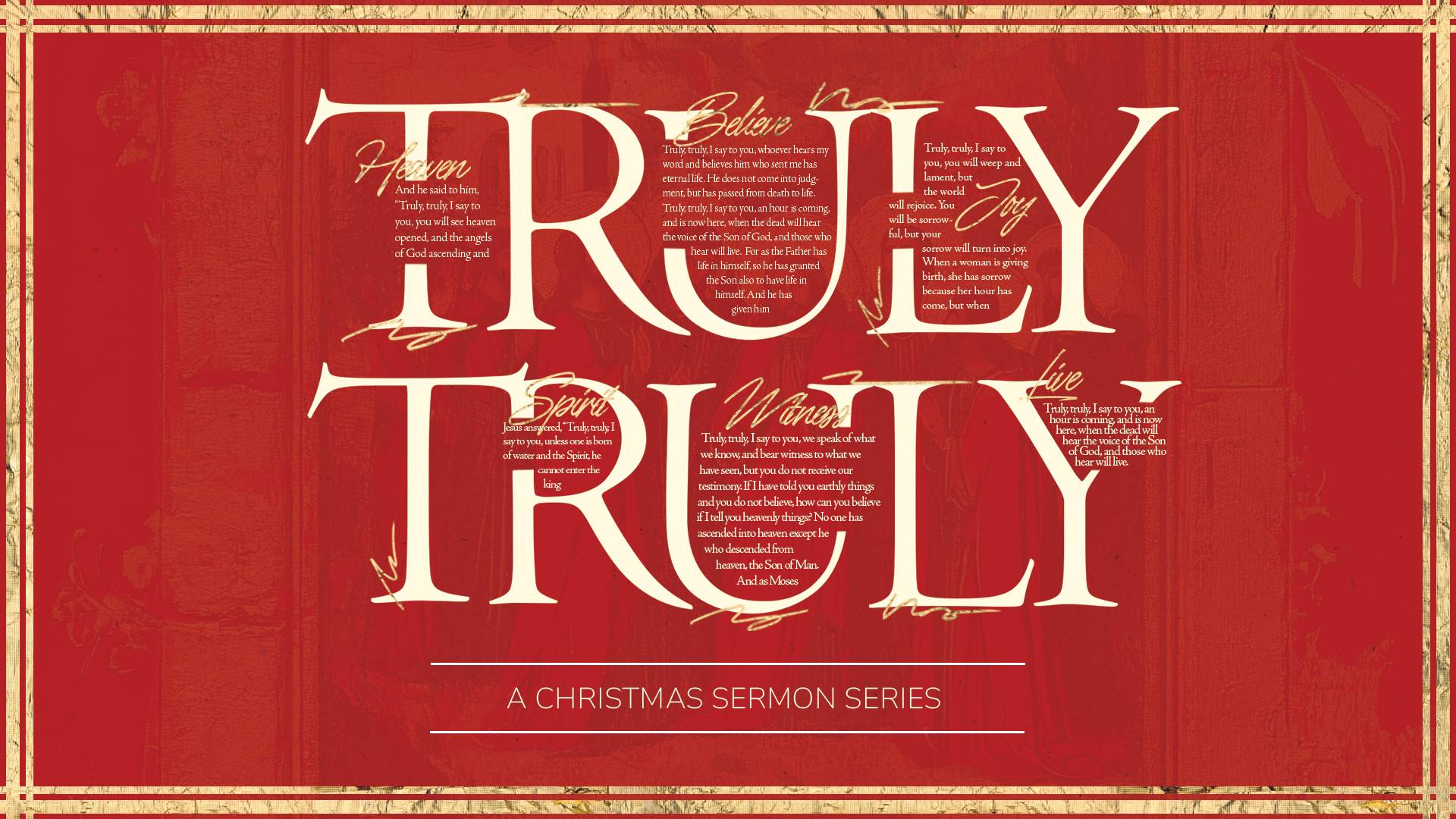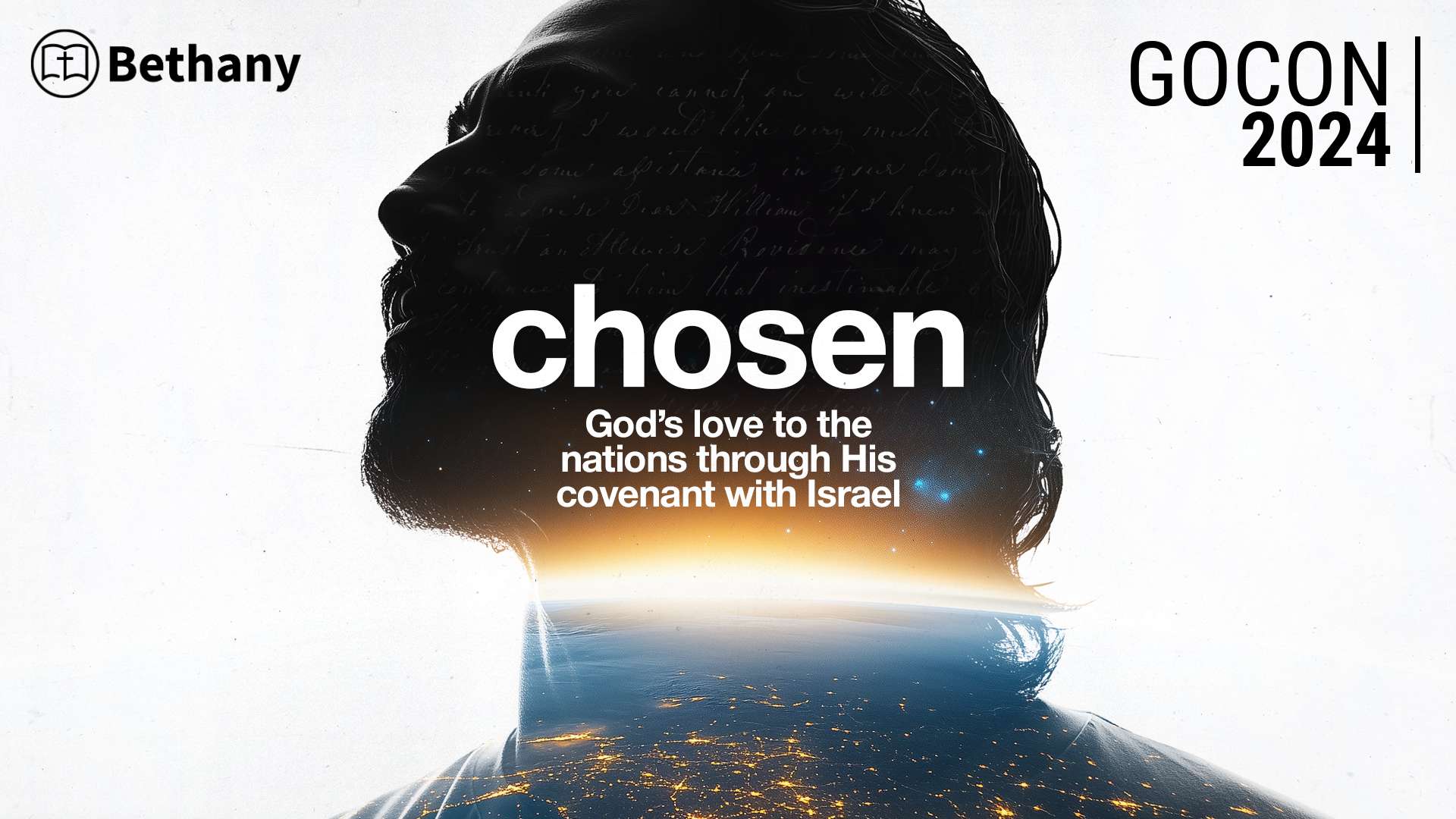Worshipping Together
Hebrews 10:19-25 (ESV)
January 2, 2022
Dr. Ritch Boerckel
We’re in Hebrews chapter 10 today. I’m going to be reading verses 19-25. We’re beginning a new series that is just a short series, a five-week series in January. We’re entitling this Back to the Basics. So these are just simply things that are basic to the Christian life. These basics that we’ve chosen for this month, this year, have to do with the basics of how we relate to one another. Oftentimes we think of individual basics like a quiet time, our prayer life, individual obedience, individual witness. But there is much in the Scripture that describes basics that we do together. So that’s going to be a focus of January. I trust that the family of God will become more precious to you, that we’ll be more committed to each other in love and hope and faith in Christ as a result of what God teaches us and speaks to us through His Word.
19 Therefore, brothers, since we have confidence to enter the holy places by the blood of Jesus, 20 by the new and living way that he opened for us through the curtain, that is, through his flesh, 21 and since we have a great high priest over the house of God, 22 let us draw near with a true heart in full assurance of faith, with our hearts sprinkled clean from an evil conscience and our bodies washed with pure water. 23 Let us hold fast the confession of our hope without wavering, for he who promised is faithful. 24 And let us consider how to stir up one another to love and good works, 25 not neglecting to meet together, as is the habit of some, but encouraging one another, and all the more as you see the Day drawing near.
May God encourage us with that Word, today! May we find a way to express that and to actually obey this passage as we worship God together.
On New Year’s Eve, my four year old grandson Malakai and I were sitting on the sofa. It was toward his bedtime. There were a lot of people in the house. His mom and dad had kind of a party, so I quietly asked him off into this little corner. Then I asked if he wanted me to tell him a story. Well, he is always about stories. He said, “Sure.” Malakai, have you ever heard the story of a time when Jesus visited a house for dinner? It was a big party with a lot of people in it. He looked around. There were a lot of people in this house that we were in. He said, “No. Nobody has ever told me that story.” I’m not sure if that’s true, but he didn’t remember it. I said, Malakai, would you like me to tell you that story? “Yes.”
I said Jesus was a guest of a man by the name of Simon. Simon had been healed of leprosy. As Jesus was eating dinner with this house full of people, there was a woman by the name of Mary who came up to Jesus and she took out a really expensive bottle of perfume. This perfume was a treasure. It was worth thousands and thousands and thousands of dollars! But Mary loved Jesus so, so much. She wanted to do something for Jesus that would show Jesus how valuable He is to her. So she opened the bottle of perfume and as she opened it, she poured it out on Jesus’ head. It flowed down His hair and into His beard and onto His robe. When she did this, it was such quality perfume that the fragrance filled the whole house. Everyone looked up because they could smell the fragrance of this perfume just wafting all through the air and they noticed what Mary had done for Jesus.
I asked Malakai, do you think that everyone in that house was happy that Mary did this for Jesus? He said, “I don’t know.” I said some of the guests were really, really upset at Mary. They were really angry at her. They spoke to her in a harsh way and they said, “Hey, you could have sold this perfume and given all of the proceeds from the sale of the perfume to the poor. Instead you wasted it on pouring it right out on Jesus’ head!”
I asked Malakai, do you know what Jesus did when they said that to Mary? Jesus said, “Don’t criticize Mary. What she did was a beautiful thing for Me. The poor you will always have with you, but you are not always going to have Me with you. What Mary did for Me is really, really important. In fact, what Mary did is so important that her act of worship is going to be told all over the world throughout all of human history.” I said, Malakai, Jesus’ promise that this story about Mary is going to be told all over the world throughout all human history is being fulfilled right now because we’re talking about Mary. Mary lived over 2,000 years ago. I said, Malakai, do you know why Mary did this? Mary wanted to show Jesus how valuable He is to her. That’s what it means to worship. Worship is simply showing God how valuable He is to us.
Malakai thought about this story a bit and he asked the question, “Did Mary pour out all the perfume inside the bottle?” Isn’t that a great question? I said, yes. Every last drop! She just drained it all out. I told him Jesus wasn’t just valuable enough to pour a few drops. That would have made it very fragrant. It was expensive perfume. He wasn’t valuable enough to just pour out half a bottle. Jesus is so valuable to Mary that she wanted to show Him by pouring every last drop of perfume out.
I said, Malakai, do you have anything that you could give that would show Jesus how valuable He is to you and that would demonstrate that He is the most important person in the whole wide world? At that, I could tell Malakai really didn’t like that question. He was working through his mind. He didn’t like it. He didn’t like the answer. I said, are you thinking of anything right now? He nodded his head. I said, what are you thinking about? He said, “my toys.” He was thinking about what it would be like to sacrifice all of his toys and it was kind of a struggle for him. I could tell that he was wrestling with this deep sacrifice.
Today, we’re going to open up our Bibles to Hebrews 10 to learn about worship. Let’s do that together. We’re going to learn what it means to demonstrate to God His great worth to us. This month’s series is entitled Back to the Basics. Nothing is so basic to the life of the Christ-follower than worship. Nothing! It’s central. It is fundamental. It is foundational for everything else. Let me define worship for you. Worship is simply our whole life response to the goodness and glory of God.
The main idea that we’re going to track through Hebrews 10 is that Jesus is worth every act of worship that we can give to Him! No act of worship given to Jesus is too extravagant. Specifically, Hebrews 10 is going to tell us that this includes our gathering together on Sunday morning, even on a really snowy and icy day. I know that some can’t come out, and that’s perfectly fine. But He is worth it. He is worth gathering together even when it’s really inconvenient. He is worth also investing our lives in other people that we may not even know that well when we do gather together. Jesus is worth caring for other people who know Him, other brothers and sisters by speaking to them words of love, by praying for them, by encouraging them with Scriptures.
If you are taking notes this morning, there are going to be four provisions in this little section that God makes so that we can worship Him. The first is our access to worship God. Our access is Jesus’ blood. The second is this invitation that God gives us to worship. That invitation is Jesus’ welcome. Then there is this challenge that we’re going to discover about worship. We’re encouraged to overcome the challenge, the obstacle of worship, through Jesus’ promise. Finally, we’re going to look at our community of worship. We’re going to talk about Jesus’ church. But first, let’s think about
Our access to worship: Jesus’ blood.
How might we get the opportunity to draw near to God in order to worship Him? We’re looking at a book called Hebrews in order to discover the answer to that question. This book is entitled Hebrews because it is written to Jewish Christians. These are Jews who had decided to follow Jesus as their Messiah. Jewish Christians who understood the Old Testament, who indeed lived the Old Testament, did not take access to God for granted. They knew what God had taught them all through the Scriptures, and that was that sinful man should rightly tremble at the thought of being in the presence of a holy God. They knew that no man or no woman could simply walk into the presence of God and survive it.
During the time of Moses, God told His people that He would dwell in their midst. That was both an encouragement, but it also caused them to tremble. He told them, but you have to keep a distance from my glory. There has to be some separation, here. He taught the people that His localized presence would reside inside the Holy of Holies in the Tabernacle, specifically right above this Ark of the Covenant, right above the Mercy Seat, the cover, the lid of the Ark of the Covenant that is inside the Holy of Holies. The big question that God’s people asked as God told them He was going to dwell with them is how can a sinful people approach a holy God for worship and live? How is that possible? To this, we turn to verses 19 and 20. Again, think of this Jewish Christian who is reading these words and who has been immersed in this understanding that approach to God, access to God is limited.
19 Therefore, brothers, since we have confidence to enter the holy places by the blood of Jesus,
There is confidence. He calls this
20 by the new and living way
The sacrifices that were made in the Old Testament, when they were killed, they stayed dead. But this is a new and living way. The sacrifice that is killed in order to make sacrifice is living. He’s talking of Jesus’ resurrection.
that he opened for us through the curtain,
The curtain separated the Holy of Holies from the rest of the temple and from the people. Only the high priest, we’ll discover, could enter through that curtain, and that was one day a year in order to make sacrifices. But now He opened for us this curtain. You remember when Jesus died, the curtain in the temple was torn in two from top to bottom, symbolizing this new and living way has been opened. We have access into God’s presence, into the Holy of Holies. He says, if you don’t understand what I’m talking about when I reference the curtain,
that is, through his flesh,
He’s talking about Jesus’ body that was torn apart in order to make a way. God calls Jesus a new and living way for us to draw near to Him in worship. He is contrasting Jesus by calling Jesus this new and living way, with the old way that God had given to the people to draw near to Him, to worship Him.
Leviticus 16, we’re going to think about it just briefly. I wish we had more time to enter into it because it’s such an amazing chapter of Scripture. God teaches us in Leviticus 16 that God made a way possible in Old Testament times for people to worship Him. That way was very specifically described. The Jewish high priest could enter the Holy of Holies once a year. This Holy of Holies was separated from the rest of the Tabernacle by a huge curtain. Once a year, the high priest could go behind the curtain into God’s very presence inside the Holy of Holies, and there he could make blood sacrifice for himself and for all the people. This particular day was called “Yom Kippur” or the Day of Atonement.
The high priest first, before he would enter, he would ceremonially bathe. It was really important for him to be clean before the Lord. Then he would put on these special garments that were also clean and consecrated. Then he would enter behind the curtain and there would be the Ark of the Covenant. On top of the Ark of the Covenant would be this Mercy Seat. There, the priest would offer a blood sacrifice of a bull and goats. All of this was done in order to atone for, or in order to make a covering for the sins of himself, his family and the whole of the people.
Understand the picture that God is drawing for His people through this Day of Atonement and the sacrifices made. He is drawing a picture that He is a glorious God. He is a holy God. He just can’t be approached by sinful man in a flippant manner. His glory is going to be manifest inside the Holy of Holies, above the Mercy Seat. That’s significant because below the Mercy Seat, that is the lid of the Ark of the Covenant, inside the Ark of the Covenant, do you know what’s there? One of the things that is there are the Ten Commandments, the stone tablets that God had given to Moses and for Moses to bring down from Mount Sinai. Those stone tablets represented the righteous requirements of God in order for us to worship. But guess what? Everyone who entered understands one thing. That is, I have not obeyed these ten rules, these Ten Commandments. Therefore, to stand in front of a holy God who I have defied and disobeyed, is terrifying because He is the righteous judge and He will not allow the guilty to go unpunished, the guilty for any part of the brokenness of this commandment.
So God in His glory resides above the mercy seat. God looks down into the ark. He sees His Ten Commandments. He looks out at people and what does He see? He sees sinners. So then the high priest comes and he makes an atonement. God says it is through a blood sacrifice that there can be forgiveness. The priest makes atonement. Do you know what he does? He coats the top of that mercy seat with blood, the blood of a bull and the blood of goats, so that when God looked down, again, He still sees the broken law and He sees the sinfulness of people, but He sees a covering now. He sees that His justice, His righteous indignation against sin is satisfied. A substitute lamb or a bull or a goat has been offered in man’s place.
Now, this whole Old Testament sacrificial system was designed by God to be temporary. It was never designed to be permanent. The annual repetition of the sacrifice was proof that the previous year’s sacrifice didn’t take, that it wasn’t complete. Why would you have to redo it the next year if it was sufficient? It wasn’t sufficient. There had to be a repetition in order for there to still remain atonement for the people. Again, all of this was to show that this sacrificial system was not sufficient in itself, but it pointed to something that God had yet in store for mankind to bring about a sufficient covering for our sin.
These sacrifices all pointed to a future sacrifice that would be final, that would be complete. Indeed, it would be the sacrifice of God’s Messiah, of Himself, of His very own Person, of spilling His own blood in order to bring forgiveness of sins. His blood sacrifice for our sin would be absolutely sufficient. When we open up the pages of the New Testament, we see Jesus being described as the Lamb of God who has come to take away the sins of the world.
This is the very reason why Jesus took on human flesh, by the way, the Scripture says. It was so that He could make a blood sacrifice for sin. As long as He remained in His form as the Son of God and not in human form, there was no way He could die on behalf of us. He couldn’t shed His blood. That’s really what Hebrews 9 and 10 is all about. Let’s look at some of these verses. They’re so amazing!
Hebrews 9:11 But when Christ appeared as a high priest of the good things that have come, then through the greater and more perfect tent (not made with hands, that is, not of this creation)
So the tent references the tabernacle, where people could come and worship God and be near God. He says Jesus is the tent. He’s the high priest. He’s also the tent. This high priest
Hebrews 9:12 he entered once for all into the holy places,
It’s not once a year, but once for all time into the holy places.
Hebrews 9:12 …not by means of the blood of goats and calves but by means of his own blood,
Think of that!
Hebrews 9:12 …thus securing an eternal redemption.
It’s not just a temporary redemption, but an eternal redemption.
Hebrews 9:13-15 For if the blood of goats and bulls,…sanctify for the purification of the flesh, how much more will the blood of Christ, who through the eternal Spirit offered himself without blemish to God, purify our conscience from dead works to serve the living God. Therefore he is the mediator of a new covenant,
Skip forward to chapter 10.
Hebrews 10:1 For since the law has but a shadow of the good things to come instead of the true form of these realities, it can never, by the same sacrifices that are continually offered every year, make perfect those who draw near.
So he says all of these sacrifices that were ordained by God and designed by God, they were all designed to be temporary, and purposely so. They’re all designed to point to something, like a shadow points to the reality. When you see the shadow of something and you don’t see that something, you know that something is there, even if you can’t see the something. The shadow is proof that there is something more that is yet to be seen. That something more is greater than the shadow itself. He says all these Old Testament sacrifices are like a shadow of the reality that God had us waiting for, and when Jesus came our wait was over.
Hebrews 10:3-4 But in these sacrifices there is a reminder of sins every year. For it is impossible for the blood of bulls and goats to take away sins.
Hebrews 10:12 But when Christ had offered for all time a single sacrifice for sins, he sat down at the right hand of God,
Now, that’s fascinating because the high priests never sat down while they were serving in the temple. There wasn’t a chair for them in all of the temple, where they could sit down. Why would this high priest sit down? Because His work is completed. He doesn’t need to continually do any more work. His work is completed when He made sacrifice. There is nothing we need to do to add to it. There is nothing He needs to do more to provide for us a complete eternal redemption salvation. He goes on to say
Hebrews 10:13 waiting from that time until his enemies should be made a footstool for his feet.
In other words, this Messiah, this Anointed One, this Christ is going to be exalted.
Hebrews 10:14 For by a single offering he has perfected for all time those who are being sanctified.
In other words, if you’re in Christ, you’re completely clean.
When Jesus shed His blood for us on the cross, He made a permanent covering for our sin. God’s holy indignation against our sin is satisfied. Paul exults in Romans 8
Romans 8:1 There is therefore now no condemnation for those who are in Christ Jesus.
None! The Father will never look upon His children who place their faith in Christ, with condemnation, because the full weight of the penalty of the law was pressed into Christ. When we believe in Jesus as our Savior and Lord, we’re united with Him in His death and resurrection so that when God now sees us who have disobeyed His law, He sees our sin, but He also sees the blood covering that is on top of the Mercy Seat that has been made by Christ. He sees the full satisfaction of His righteousness. He sees the atoning sacrifice of Jesus. That changes His disposition for us. So do you see why this access is so very, very important?
Friend, do you know that you are clean and forgiven through the blood of Jesus? We can apply His death personally to our own life and not be concerned that perhaps we are the exception to the general rule that generally, Jesus’ blood is sufficient to take away the guilt and shame and condemnation that our sins deserve, but for us, maybe not, because our sin is somewhat special in its wickedness. There are no exceptions to the perfection and sufficiency of Jesus’ work on the cross to bring absolute forgiveness and cleansing. How can we be confident that Jesus’ blood is sufficient to remove our sins from us?
19 Therefore, brothers, since we have confidence to enter the holy places by the blood of Jesus, 20 by the new and living way that he opened for us through the curtain, that is, through his flesh,
In other words, how can we be confident? Look to the cross! That’s what God is telling us here. You see, true worship rests on the atonement of Jesus Christ. There is no worship if we don’t know the atoning sacrifice of Jesus. There is no worship. There is no way for us to draw near. The access we have to enter into worship is provided by Christ Jesus in His death on the cross. He is the only means by which we can draw near to God. That’s wonderful to see that we have access to draw near with confidence. But more than that, secondly, observe
Our invitation to worship: Jesus’ welcome.
Not only does He say, “Yes, I’ve made a way. Go if you want.” But He is welcoming us. He is inviting us.
21 and since we have a great high priest over the house of God,
We have a great High Priest. He is our great priest. What is the heart of a great priest for His people? It’s the heart of wanting to help them worship. It’s wanting to help them experience the blessings of God. Isn’t that what a great priest does? He is our great priest. That’s His disposition to us now. So then
22 let us draw near with a true heart in full assurance of faith,
We have a great high priest who invites us and who welcomes us into the presence of God. So let’s draw near. Let’s accept this invitation from Christ
with our hearts sprinkled clean from an evil conscience and our bodies washed with pure water.
Who does Jesus invite to the Table of Worship? The answer is every person who has Him as their great High Priest. So everyone who has Jesus as their great High Priest is invited to this dinner, this feast of worship. Only those who have Jesus as the great high Priest are invited to the feast of worship. That’s why there is only one way. It’s because there is only one Son who could invite us to the Father’s table. No one else has the right to say, “Come on in to my Father’s table and feast with Him and draw near to Him and come to know Him and enjoy Him.” No one has that right! Only the Son has that right. There is only one Mediator and that’s Jesus. But in making access, He also has a heart that wants us to come, that yearns for us to come.
I have a son who serves the Air Force as a pilot. When he was in New Jersey, he flew these huge refueling tankers. Because he is a pilot, he was able to invite us out onto the tarmac and up into the plane. No one else is invited to go there. You had to have special credentials. Even other officers couldn’t necessarily get out there and just have access to that plane. That was his plane. It was his responsibility, so he had access. But not only did he give us access, but he invited us. He said, “I really want you to see what I do and see where I work and see the plane that I fly.” So it wasn’t just that he provided access for us. That would have been cool enough and we would have gladly done it. But to see the joy in the heart of my son saying, “Come! I want you to see the plane that I fly and to talk to you about it and all of its specifics.” When Jesus made access for us to the Father, it’s not just access where He says, “Yes, if you want to go, that’s great. If you don’t, that’s fine.” It’s the heart of a Savior to say, “I really want you to see this. I really want you to experience the blessing of knowing God.” It’s this warmth of invitation.
When we receive a warm invitation from someone who we know loves us and cares for us, we are drawn. We’re drawn to receive that invitation. We don’t accept the invitation to the table out of obligation. “Well, I guess I should because they invited me. So I guess they would probably be disappointed if I didn’t.” No. Just like I received the invitation of my son with great joy, “Yes, of course I want to go. I can’t wait.” I enjoyed every moment of it. We have a God who is happy in Himself if we didn’t accept the invitation. He doesn’t need us to be there, but nonetheless, with a warm heart of a Father, the warm heart of a great High Priest, the warm heart of a shepherd, He comes to us and says, “You’re invited. Welcome! Come on in.” Enjoy God! John 4 tells us something of the heart of our Father. Jesus says
John 4:23 But the hour is coming, and is now here, when the true worshipers will worship the Father in spirit and truth, for the Father is seeking such people to worship him.
That’s the disposition of the Father in regards to this essential of worship. Jesus’ invitation to worship is genuine. It’s affectionate. It’s filled with joy and delight. He loves to draw us near to the Father in worship. What a gift His welcome is.
Our challenge to worship: Jesus’ promise.
Worship is not without some obstacles.
23 Let us hold fast the confession of our hope without wavering, for he who promised is faithful.
This little encouragement, “let us hold fast to the confession,” wouldn’t be given if it was easy to hold fast to the confession of hope. It wouldn’t be given if we didn’t ever feel like letting go. Let me ask you, in your spiritual life, do you ever feel like quitting your worship of God? Do you ever feel like releasing some of its depth, some of its fullness, some of its commitment maybe to dabble instead of dive deep with the Lord? Do you feel like giving up the fight for loving God above all things in this world and to just start loving this world and the things of this world? Do you ever feel like giving in to the hopelessness that seems to just be crowding your soul as a result of discouragements and trials? You think, “What’s the use? I’m just going to give into despair, instead of fight it for hope.” God speaks this word of challenge to us. Let’s hold fast the confession of our hope.
What is this confession of our hope that God is encouraging us to hold fast to? Well, confession is testimony. We saw two people this morning make confession. They opened their mouths and they began to give a testimony, a verbal witness to the excellency of Jesus. Isn’t that what just happened? That’s the confession of our hope. You see, for the Christian, the basic of the Christian life is confession. In other words, it’s more than just holding our heart and finally someone comes to us and asks, “Do you believe in Jesus?” You answer, “Yes, I do,” and you speak really quietly in case other people hear. The basic Christian life is our daily response to God to bring a confession, a verbal testimony of Jesus’ value in our life. He says, “Don’t let go of that confession. Hold fast to that confession. Continue to testify that Jesus is worthy of your worship. Continue to speak of His worth, His goodness, His grace, His salvation, His significance.” This is the confession that we hold fast to. This confession that we exclaim is Jesus is my Savior. Jesus is my Shepherd. Jesus is my Sovereign Lord. Jesus is the source of my life. So we as Christ-followers, in our worship, we don’t let go of speaking or giving verbal testimony of the goodness of Christ.
This is something that I think is a great danger. It’s a great danger because there are so many people who we know who would testify to being Christians who don’t give verbal testimony. It becomes sort of like the culture. We just don’t talk about it. We all affirm it. We maybe pray before a meal. But after the meal gets started, we don’t really talk about Jesus, do we? We don’t really give a testimony of what is real life about Him. What God is telling us is part of our worship is to make sure we have this commitment, this zeal to share with our brothers and sisters who are already followers of Jesus, as well as to share with the world outside of us who don’t know Jesus, to just testify, “This is my confession and it’s a confession that gives me hope. It’s what keeps me from being overcome by the despair of this world.”
He says to hold fast to the confession. When I think of holding fast, I think of the story in Genesis 32. Do you remember that story? It’s where Jacob meets God. He’s about ready to meet Esau and he knows that Esau is going to be really mad at him. He thinks Esau is going to kill him, and God meets him. The Son of God meets him and there is a wrestling match. The Son of God sort of pins Jacob and says
Genesis 32:26 Then he said, “Let me go, for the day has broken.”
In other words, it’s morning time now. Our wrestling match is over.
Genesis 32:26 …But Jacob said, “I will not let you go unless you bless me.”
That’s what it means to hold fast. “I won’t let go. I might feel like letting go. I might be really tired. It might be painful, but I am not going to let go of the confession of my hope. I’m going to say it today and I’m going to find someone to talk to about Jesus tomorrow. I’m going to talk about Jesus on Tuesday and on Wednesday. I am going to hold fast to the confession of my hope. I need that for my soul. I need that for my worship and I know other people need to hear how good Jesus is too. I’m going to hold fast to the confession of my hope.”
There are two qualities involved in this holding fast as I think about Jacob and this wrestling and saying, “I’m not going to let you go until you bless me.” Those two qualities are zeal and perseverance. They are related, but different. Zeal is a holy energy. Zeal is a heart passion. Perseverance is a grit. It’s a keeping on. It’s an endurance. Both of these are necessary to hold fast. We must not be content with one without the other. I have known many friends throughout my life that have had a zeal for the Lord without perseverance. Those friends are no longer walking with God. Hold fast to zeal with perseverance. I have had many friends in my life as well who have perseverance but no zeal. There, it’s just sort of this blah, apathetic, lifeless kind of thing. Hold fast to the confession of your hope. Jesus is worthy. He is worthy of making confession. By making confession, we ignite our hope. We ignite our confidence about a future day. We ignite our joy in the Lord today. Zeal with perseverance! Let’s press on toward Christ.
But aren’t we weak though to hold fast? Don’t we feel ourselves losing the grip? Jacob didn’t hold on because he was more powerful than the Son of God. He held on because the Son of God at that point, was holding onto him and giving him strength to hold on. I love 2 Corinthians 1! It says
2 Corinthians 1:21 And it is God who establishes us with you in Christ,
We hold fast not in our own strength. We hold fast by God who establishes us, who strengthens us in Christ.
2 Corinthians 1:21-22 …and has anointed us, and who has also put his seal on us and given us his Spirit in our hearts as a guarantee.
But beloved, let’s hold fast with all the grace that God supplies us in Christ Jesus. Last, I want to spend some time this morning talking about
Our community of worship: Jesus’ church.
24 And let us consider how to stir up one another to love and good works, 25 not neglecting to meet together, as is the habit of some, but encouraging one another, and all the more as you see the Day drawing near.
God has been emphasizing this together nature of worship all through this chapter. Have you noticed that?
19 Therefore, brothers, since we have confidence
21 and since we have a great high priest
22 let us draw near
23 Let us hold fast
24 And let us consider
All through, God has been emphasizing that worship is received, is engaged in community. John Wesley often quoted a godly friend when he said, “The Bible knows nothing of solitary religion.” We don’t do it on our own. God intends for worship to be a team sport. I have to say that today because many have come underneath the deception that worship is mostly an individual sport, like golf. You can go out and play it on your own and have fun at it without anybody around. No, worship is like baseball. You really can’t play baseball with one person. God intends for worship to be corporate. Private worship is necessary. Don’t get me wrong. But private worship is not sufficient in itself. That heart of corporate worship says, “Lord, you are so worthy that you are worthy for every knee to bow before you. You are worthy to receive glory from every person who calls upon your name.” The psalmist understands this in Psalm 95.
Psalm 95:6-7 Oh come, let us worship and bow down; let us kneel before the LORD, our Maker! For he is our God, and we are the people of his pasture, and the sheep of his hand.
God is worthy to have His people, all of us together in one room singing His praises, listening to His voice, praying and calling out upon Him in dependence.
God says something very specific about worship in this passage. He says, “If you want to give me glory, if you want to express my worth, here is the one action I’m going to talk about here in this passage. Consider how you might strengthen your brothers and sisters in their worship of Me. Consider that. Let that be one of the thoughts as you enter in, every time you gather, to say, ‘I’m going to be gathering with brothers and sisters. I want to think how could my presence change and influence the experience of other brothers and sisters who are gathering to worship?’” So I enter into the gathering place, wherever that gathering place is, here it’s in the Sanctuary. I’m thinking on the basis of the application of Scripture, how might God use me to strengthen the worship of the people around me? He says to consider this.
24 And let us consider how to stir up one another to love and good works, 25 not neglecting to meet together, as is the habit of some, but encouraging one another, and all the more as you see the Day drawing near.
The English translation is a bit difficult here when it says “consider how to stir up.” If we read it literally, it says, “consider one another.” Consider the people. In other words, take your eyes off of a whole bunch of distractions and place the eyes of our heart upon our brothers and sisters in our own local church and to say, “I care about their worship. I care about their faith. I care about their spirit.” This passage calls us to intentionality in our relationships. It’s not just sort of haphazard where we say, “Well, if I have some relationships, I hope I can talk to people willy-nilly.” But it’s to have intention of considering, taking time to think about other people, some of those people who we wouldn’t naturally think about. I’m going to take some time to consciously look around and pray, “God, who would you have me to strengthen, to encourage, to help today?” Trust that God will lead us in an amazing way and use us in an amazing way for His glory, for the worship of His name.
He says how to stir up. That also is an unusual word. Various translations read “stimulate one another, spur one another on, motivate one another, promote love, provoke love.” I will always remember my 5th grade basketball coach because he was really the only coach in my life that was so good at this. First he taught the fundamentals of the game. But he also taught more than anything to look around and consider your teammates. Consider your role and consider how you can help your teammates get better in their role. As a result of that, our team was a great, fun team and our team was super successful because every one of us were considering our teammates.
That doesn’t happen naturally, does it? Naturally, we think about ourselves. How come I’m not getting the ball? What can I do? How can I get my points up and have my opportunity? This coach was really good at teaching us how to consider one another and it made the difference between winning and losing. I think a lot of churches lose because we don’t take time to consider one another. We think, “I’m here for my purposes. I want the ball. I want to shoot it from here. I want this many minutes and this is what it’s all about for me.” Instead say, “I’m going to consider how to stimulate others so that they can be better players, better worshipers, enjoy God more, that they might know Him more and more and that they might also have the joy of making Him known. God is coaching us here as He says
24 And let us consider how to stir up one another to love and good works,
It’s a great practice to apply that verse not just on Sundays, but really, every day. Say, “God, would you call to mind some brothers and sisters who I wouldn’t naturally think about and they may not be in sort of my natural rhythm of life. How can I stir them up? Maybe I can pray for them. Maybe I can send them a text. Maybe I can send Scripture. Maybe I can make a phone call. Maybe I can invite them for coffee. Maybe I can do something.
What I want to observe here is that there is an intentionality that God would have us in our relationships. There is a spirituality that God would have us. There is a focus on worship and there is a universality to this call. In other words, it’s not the pastors who are just to do that. It’s not “the pastors and elders, that’s their role because they’re shepherds and they need to do that.” Yes, we need to do that and that’s part of our role. But really, he is saying that is every worshiper. This is every person committing to intentional relationships to build up the body of Christ, to build our worship. He goes on to say
25 not neglecting to meet together, as is the habit of some,
Meeting together refers to these regular services where we listen to God through His Word, pray together, fellowship around the Lord’s Supper, encourage one another. God cares about together in our worship. He cares about together. Do a word study on how many times God says the word “together,” Because God cares about together for His people, His family, His children to be together in worship, He implores us not to forsake the assembling of ourselves together.
Not forsaking doesn’t mean we never miss a church service. There are many missing the church service today because of weather and that’s certainly understandable. But it does mean that there is a real heart commitment to say I’m not just going to miss it willy-nilly because other things are more important. Whatever those other things are, I’m not going to let this hobby, this interest, this activity with my children, etc. I’m not going to let it get in the way so that I forsake the gathering together of God’s people for worship. This is the most necessary thing. I started off back to the basics. The most fundamental, foundational, central activity of the life of a Christian is worship. If that is true, everything else will find their goodness as it is built upon that fundamental. If we flip that and put something else as fundamental, that thing won’t sustain us and we’ll find it crushing life. It may work for a time and it may be satisfying, but it crushes life.
Clearly, there must be a temptation even in the early church to do this. I don’t know what was on television in the first century that caused people to want to stay home, but something was there. Something was motivating people to say, “I don’t feel like getting out today.” There is something there because it already had become a habit in the first century. Worship is too fundamental. It’s too central. When we meet together, God designs to use us to spiritually build up others in the body of Christ.
There are four questions that I’ve been asking myself for the last several months, and I’ve been asking some other friends as I meet and think about what it means to follow Christ. Here are the questions. One of them really strongly has to do with this verse. Here are the four questions. I probably need to add to them, but these are where they are right now. How do I evaluate or assess my walk or my relationship, my faith? How do I evaluate that? Here are four questions.
First, how am I strengthening my worship of God? This is my personal walk, my corporate worship. How am I strengthening my worship of God? I phrase it that way because none of us has arrived. We’re either in a sphere of constructing or deterioration. So how am I strengthening? I want to continue to grow, grow, grow. That’s the normal Christian life. I want to be in that normal path. So how am I strengthening my worship of God today?
Secondly, how am I strengthening the key relationships that God has given to me?
Third, how am I strengthening my own local church family?
Fourth, how am I strengthening the witness of Jesus in my world?
Think about that! That third one is the one that we often don’t even ask in discipleship groups. We often think of how is my church family strengthening me? But really, God flips that. It’s right for us to want our church family to strengthen us and we should be strengthened by our own local church family. But the first question is how can I strengthen my church family? In other words, as a result of me being in my church, how is the church different? Is it better in its worship? Is it more committed? Is it more faithful? As a result, what has happened? If I were to exit, would there be a huge negative impact or a huge positive impact? How am I strengthening my own local church?
We often think of the church as a gas station. We are the cars. We drive in there and we get our spiritual tank filled up and then we’re ready to go for the week. We are cars. We do need our spiritual tank filled up. Praise God that we can have that happen! But God also has made us individually to be gas pumps. Who is pumping the gas if everybody has a car driving in? God would have each one of us get our spiritual gas tank filled up, but let’s also say to each other, “Here, let me fill up your tank.” I guarantee you, if you come to church with that mindset, you’re going to find the joy of people saying every week, “That conversation I had with you, that verse you shared with me, that prayer you prayed with me, I can’t tell you how much that means to me.” I’m not saying every interaction will be this earth-shattering, but some of them will be. When that becomes the focus and the heart of our worship, our love for God is our love for one another. Beloved, we all need encouragement. This world is a world of discouragement and darkness.
This series is entitled All In. Worship begins with the atonement of Jesus. We’re going to celebrate the Lord’s Supper in a moment. I want to ask you, have you personally received for yourself the blessings that Jesus secured for you by shedding His blood for you on the cross. Have you received the benefit of Jesus’ atoning death? We receive the benefit of Jesus’ atoning death when we come before the Lord and say, “God, I’ve sinned against you and I’m a mess. I can’t draw near to you because you’re holy and I’m not. It’s a terrifying thing to fall into the hands of a God who is righteous and just when a person is in the state I’m in. I need your mercy. I also know you love me and you sent your Son, Jesus, to die on the cross, to take my sins upon Himself, to pay them in full. I trust in Him to cover me. I have no covering other than the blood of Jesus. It’s by grace that I am rescued through faith in Jesus and I trust in you, today.” If today you would cry out to God, if your heart is open, cry out right now where you sit and say, “God, I need Jesus to be my Savior. I need to receive the full benefits of His death for me.” So that’s the first thing. That’s where worship begins. But then worship continues. It’s daily, all the way into eternity.
My four year old grandson, in that story, he asked me the question, “Did Mary pour out all the perfume in that bottle?” Malakai’s question kind of haunts me because I hear my heart in his question. It haunts me. Did she really need to pour out all the perfume? The question isn’t so much about Mary. It’s about me. God, what about just some drops, here. It’s expensive perfume. That’s a sacrifice. How about that? How about a quart of the bottle? How about half the bottle? How about three quarters of the bottle? Is that enough to show how much worth you have in my life? Did Mary pour out all the perfume in the bottle? Malakai, yes she did because she saw Jesus to be that valuable.
Latest Sermon Series
Get the App
Watch the Latest Sermon
Get access to each week's sermon right on your phone. Look up sermons & series.Get the Digital Bulletin
Get the latest updates, events, & family news by checking out the digital bulletin.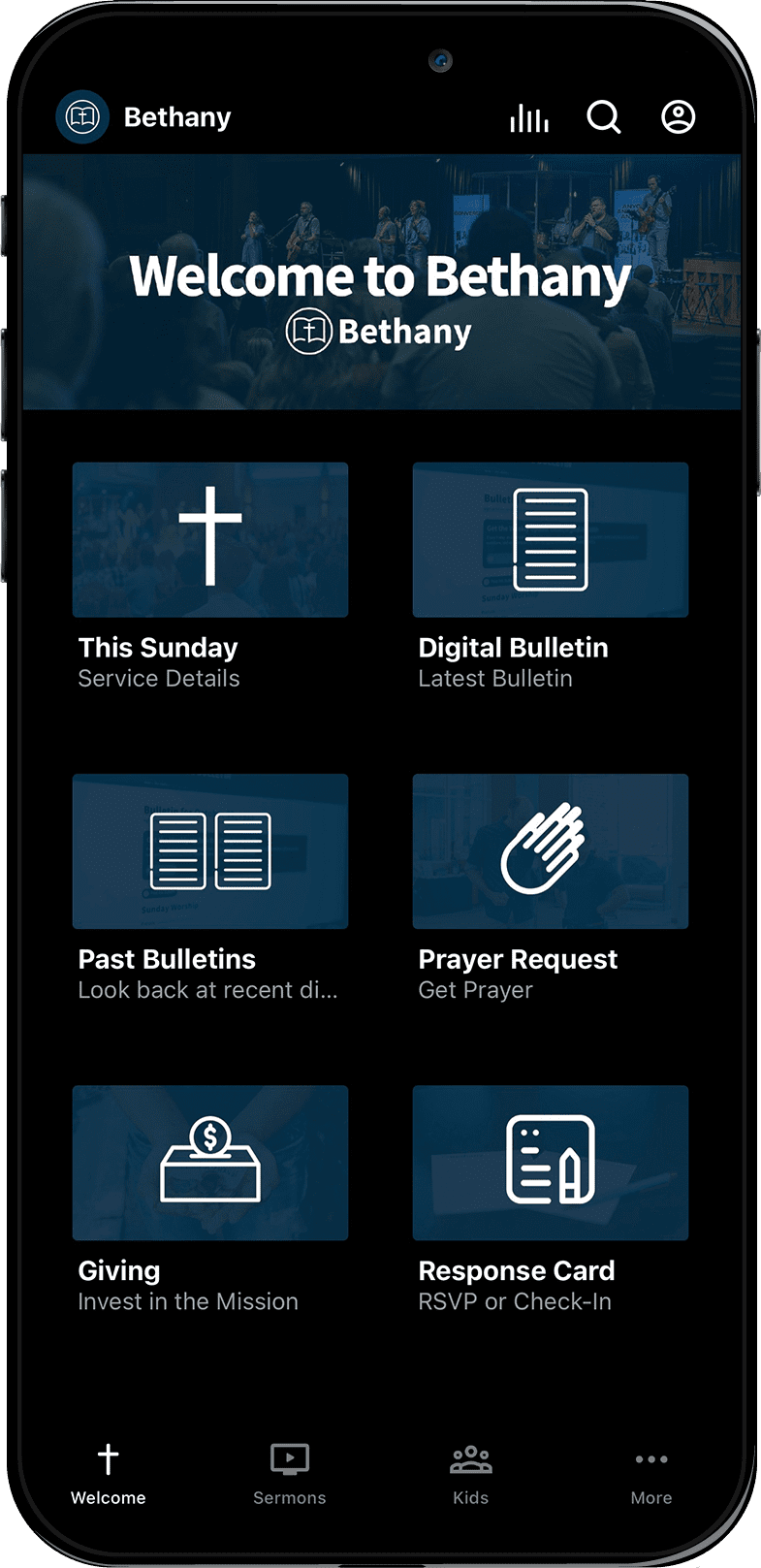
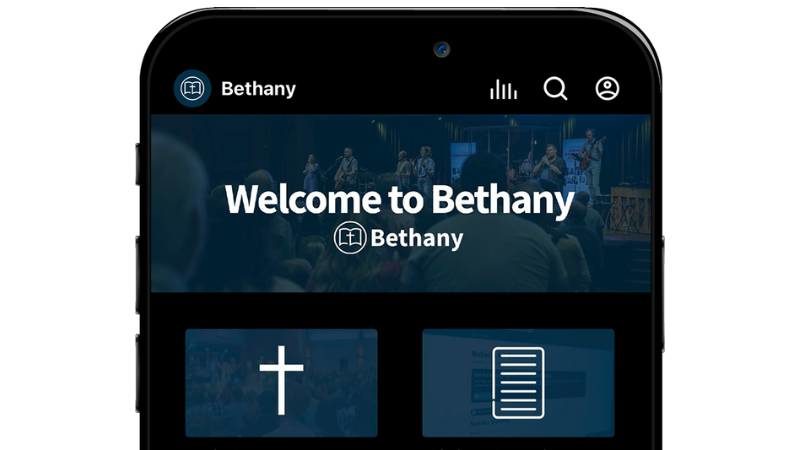
- 1Watch the Latest Sermons
- 2Get the Digital Bulletin
- 3Tell us how to pray for you
- 4Get updates and notifications
